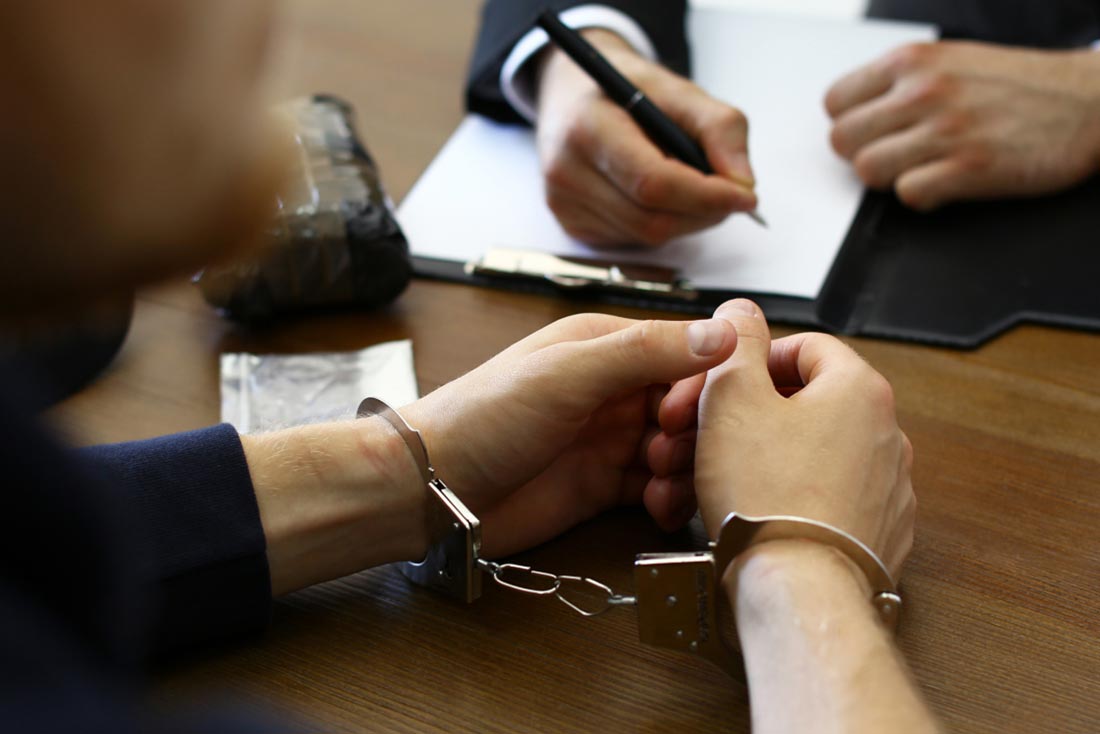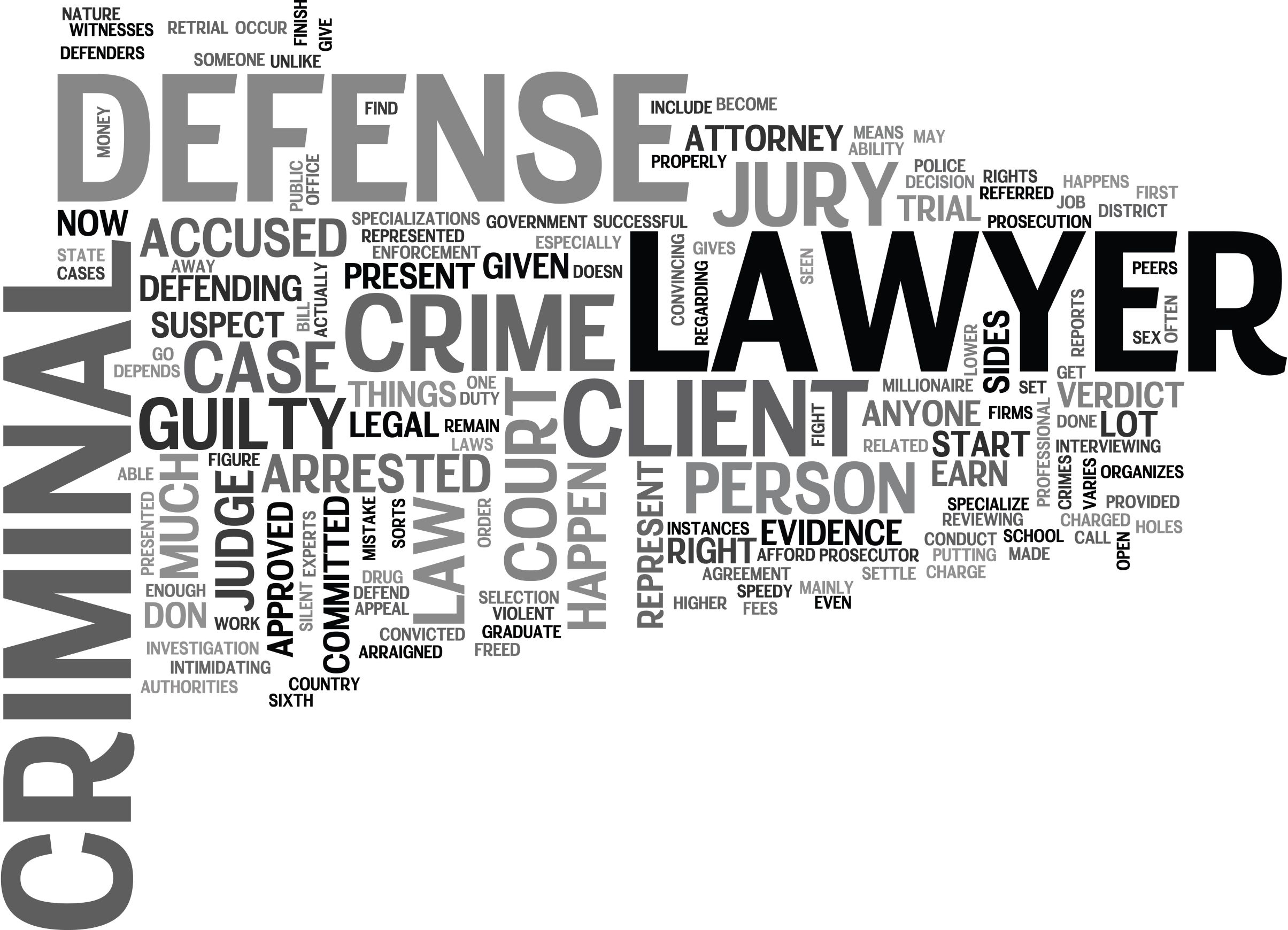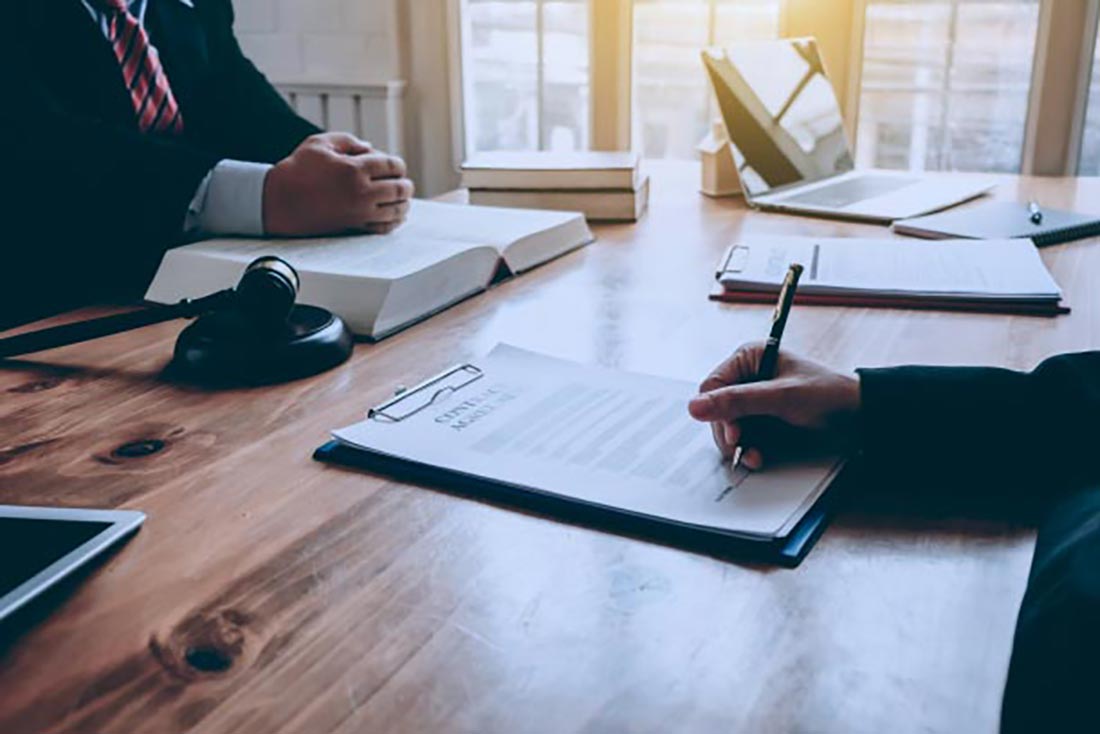A criminal defense attorney performs many actions on behalf of their client, many being behind the scenes. So, what exactly does that entail?
Analysis of Evidence
Upon receiving Discovery documents or evidence against you, the attorney will have to take steps to properly analyze it. This is done by:
- Thoroughly and meticulously studying the facts and theories presented in the case,
- Independently testing evidence, sometimes with a third party,
- Examining evidence to see if there are any legal theories which work in conjunction to stop the conviction or amend the charges brought against the defendant.
Investigation
The first thing an attorney looks to do in an investigation is acquit their defendant. This process is completed by:
- Questioning the police about the methods and practices they used,
- Interviewing eyewitnesses and discussing their testimony and collecting detailed information,
- Reviewing the case brought by the prosecution to find any holes in the evidence brought against the defendant.
- When reviewing evidence brought by the prosecution, a criminal defense attorney may hire experts or a third-party lab to test said evidence.
Keeping Regular Communication with Client
It is not only important to keep a client informed about their case but is also a requirement of the attorney. Some key features of regular communication between an attorney and their client include:
- Ensuring timely updates regarding case progress and keeping client informed of the details surrounding their case,
- Helping to ensure confidentiality of case details,
- Help to give client a better understanding of the consequences of their situation by communicating in a clear and direct manner.
What is criminal procedure?
Criminal procedure is known as the set of rules which govern the series of proceedings through which the federal, state, or local government enforces substantive criminal law.
What is the order of criminal proceedings?
There is an order of events to follow when someone is charged with a crime. It is important for you to understand the order of events so you can know what to expect and be prepared for the journey in which you are about to embark.
Arrest
Typically, the first step of a criminal proceeding is an arrest. There are different reasons and methods an arrest can occur in the nature that it does. The two main methods include:
- Obtaining a signed warrant from a judge, which will specify the crime a defendant is suspected of committing, or,
- By police who have probable cause to believe you have committed a crime.
If or when you are arrested, you must be read your Miranda Rights. If not read, it is crucial for you to inform your counsel that you have not been informed of your rights. It is imperative that you have been read the Miranda Rights as they contain two very important rights which are stated within them:
- The guaranteed right to remain silent, so one does not self-incriminate, (5th amendment) and
- The right to counsel (6th amendment).
After being arrested and being read your Miranda Rights, you can expect to then be booked at the police station. During the booking process, you can expect:
- To have your mugshot and fingerprints taken,
- Give your biographical information,
- Have your personal belongings collected until you are released from custody.
Parks and Meade encourages you to invoke you right to remain silent immediately upon
Detention
After being arrested and booked at the police station, you can expect to be detained. You will wait there until:
- Your court date has arrived, or
- You have posted bail.
If you have been detained and are looking to post bail, you can expect to see:
- A lower bond if you are a first-time offender with relatively non-serious misdemeanor offenses as a recognizance (or “signature”) bond requiring no payment of funds, to
- Hundreds of thousands of dollars if you are an offender charged with high level felonies, particularly if you have a record of prior offenses and/or a history of failing to appear for court.
Some important information surrounding bail includes:
Generally, bail may be denied if you have been charged with:
- Aggravated murder (not a capital offense),
- Murder,
- A first- or second-degree felony,
- Vehicular homicide/manslaughter,
- Felony menacing by stalking, or
- Felony OVI.
Before denying bail in the instances above, a judge must determine that clear and convincing evidence shows that:
- There is proof you have committed the alleged crime,
- You pose a serious risk of danger to others or the community, and
- No pre-trial release conditions will assure you do not harm anyone else or the community.
Even without the criteria listed above, risk to the public and/or risk of flight to avoid punishment could result in an extraordinary bond amount that few, if anyone, could post.
If you cannot afford to post bail, visiting a bail bondsman is a feasible option so that you may pay only a small portion, typically 10%, of the determined bail. Your criminal defense attorney can often recommend a good bondsman who will reasonably work with clients.
The guaranteed right to a speedy trial is relative to the charges imposed upon you. Time periods you can expect to fight your criminal charges can range from:
- 45 days for 3rd and 4th degree misdemeanors,
- 90 days for 1st and 2nd degree misdemeanors,
- 270 days for Felonies
If you are held on the charges presented to you, as opposed to on a separate or unrelated case, you will receive 3 days of speedy trial credit.
It is important to note that speedy trials may be delayed by simple actions. For example, a defense attorney making a demand for discovery, which is required to effectively defend a client in any case more serious than a speeding ticket, can delay a speedy trial. In some instances, you may be presented with an option to waive your right to a speedy trial. In this case, your attorney will explain to you in detail if and why they believe this waiver would benefit you and your case.
Arraignment
The first appearance a defendant makes in court is known as an Arraignment. At this appearance, the charges filed against you will be read and explained by a judge or magistrate followed by a request to enter a plea of:
- Not Guilty- a plea by a criminal defendant who intends to contest the charges.
- Guilty- a statement in which a person says that they are guilty of a particular crime.
- Nolo Contendere of “No Contest”- a plea that does not contest the charges, but rather accepts them, without an admission of guilt.
- It is important to note that a no contest plea means you will almost assuredly be found guilty immediately thereafter.
- Do not plead no contest in the hope that this will meaningfully improve your situation from a guilty plea, and strongly consider consulting legal counsel first
You may always change your plea from not guilty to guilty later, but it is extremely difficult to change your plea from guilty to not guilty. Therefore, you should be very cautious about entering a guilty plea without consulting counsel first.
Pre-Trial Hearing
A pre-trial hearing is a meeting that hopes to resolve simple issues prior to the beginning of the court case and so that the trial may proceed more effectively. At the pre-trial hearing, the defendant and their attorney, the prosecutor, and the judge or magistrate presiding over the case will all be present. Pre-trial hearings are meant to address, but are not limited to:
- Filing and obtaining necessary pre-trial motions,
- Accepting or denying accusations or claims against the defendant,
- Settling undisputed facts,
- Arguing over which evidence should be included at trial,
- Arguing whether a witness should or should not be used,
- Establishing basic rules for future court proceedings to follow,
- Scheduling needs related to trial and other pre-trial matters,
Preliminary Hearing
A preliminary hearing is when the prosecution must establish to a judge that there is enough evidence against you to indicate that there is in fact probable cause that you committed a crime. Preliminary hearings only occur in felony cases, not misdemeanor cases and differs from a trial in that:
- A trial must prove reasonable doubt that a crime was committed, whereas
- A preliminary hearing only must establish probable cause.
Preliminary hearings give defense attorneys positive opportunities in establishing their defense such as:
Observing what evidence the prosecution has in their possession and how they intend to use it against you,
The ability to refute evidence, and
Cross examining witnesses to divulge weak arguments and evidence found within the prosecutor’s case
Despite a judge’s ruling of insufficient probable cause, it is an unlikelihood that you would be released from custody.
Many counties, including most in central Ohio, do not actually hold preliminary hearings, but rather set the date as a deadline for the prosecutor to either indict the defendant, or nolle, which is to temporarily dismiss the case for a future indictment. An example of nolle would be:
In a low to medium level drug possession case, which will typically be dismissed on the preliminary hearing date for future indictment as the drug lab results are not returned yet, the prosecutor’s office will issue an indictment several months to a year later.
Suppression Hearing
A suppression hearing allows for a defense attorney and the prosecutor to make motions and requests to the court prior to the start of a trial. An attorney may need a suppression hearing when they need to file:
A motion to suppress- a request by a defendant to exclude certain evidence at trial.
Common Grounds to suppress evidence include but are not limited to:
Unlawful search and seizure- A violation of the 4th amendment, which indicates law enforcement must have either a valid search or arrest warrant, or probable cause to believe a crime was committed to physically stop an individual and search them for evidence.
Chain of custody errors- Police must follow certain procedures when handling evidence, from the moment it is collected up until it is exhibited at trial. Errors in this chain of command occur when evidence is incorrectly labeled or filed, or even confused as part of another case.
Failure to read Miranda Rights- Miranda Rights are read when an individual is arrested. These rights inform an individual of their right to remain silent and not self-incriminate in addition to informing them of their right to counsel. These rights must be at the time of arrest.
Plea Bargains
When suppressing the prosecutor’s evidence is unsuccessful and there are improbable prospects of winning a trial, the defense attorney may suggest it is within your best interest to take a plea bargain. Plea bargains entail:
The defense attorney negotiating a deal in which the defendant pleads guilty,
- The defendant receiving a conviction for lesser charges or a reduced number of overall charges,
- The prosecutor may also indicate to and reassure the defendant that they will recommend a more lenient sentence than the one initially proposed.
There are benefits to a plea bargain despite entering a plea of guilty. Some benefits are:
- A quicker end to their criminal proceedings,
- In some cases, avoiding jail time partially or completely,
- Reduced fines and court costs,
- Less publicity and inconvenience to their personal life.
Three important notes regarding plea bargains include:
- Your attorney will never accept or refuse a plea bargain without discussing it with you first,
- Any plea bargain the prosecution makes, even ones that the attorney thinks are bad for you and will explain why, will be communicated to you regardless,
- The decision to accept any plea agreement or alternatively proceeding with trial and/or motion to suppress, while the attorney will give their advice and benefit of their experience in making that decision, is fundamentally always the clients call.
Trial
Not every case that was unsuccessful at suppressing evidence ends in a plea bargain, some go to trial. At trial, there is an opportunity to prove your innocence. The job of the defense attorney in a trial is to demonstrate that the prosecution has not proven their case beyond a reasonable doubt. This may be done through:
- Discrediting witnesses,
- Re-interpreting the prosecution’s evidence in a manner that is favorable for the defendant,
- Offering additional evidence that does not point to the defendant’s guilt,
- If a jury is present, appealing to their emotion in hopes to secure a verdict reading not guilty.
The defense does not have to establish the innocence of their client, only that the prosecution has failed to meet its requirement.
Jury Selection
In cases that go to trial, some are in front of a judge and others are in front of a judge and a jury. If your case is in front of a jury, then the defense and prosecution engage in the jury selection process. The jury selection process begins by:
The trial judge begins the process of “voir dire”, which means “to speak the truth” in Latin. The judge will then ask prospective jurors questions to ensure that:
- The juror is legally qualified to serve on a jury, and
- The juror will not face undue hardship due to jury service
Both the defense and prosecution continue the process by questioning prospective jurors about:
- Their biases,
- Their background,
- Their pre-existing knowledge of the case.
While attorneys can ask questions that are crafted to uncover characteristics or experiences that may indicate if a prospective juror is likely to favor either the prosecution or the defense. It is also important to note that lawyers are not allowed to ask overly personal questions, nor are they allowed to ask jurors how they would decide a case in advance.
The jury selection process is one that allows for attorneys to ask that a juror may be removed for cause on the grounds that:
- A juror displays actual bias- when a juror admits that they would not be able to be impartial, or when
- A juror displays implied bias- when a potential juror displays character traits or personal experiences that may indicate it would be unlikely that they are able to be impartial despite what was answered during voir dire questioning, or if
- There are peremptory challenges- while there is no reason required to excuse a potential juror by a lawyer in this fashion, race and class may not be a factor in its use. This allows for the prosecution or defense to dismiss a qualified potential juror that is likely to favor the opposing party.
The order of a trial is as follows:
- Opening Statements- The introduction to the case by the defense and the prosecution, explaining what will be proved during trial and is limited to what the evidence will present.
- Presentation of Evidence- Displaying and explaining evidence including, but not limited to, witness testimony, documents, objects, and photographs at trial with the purpose of convincing the judge and/or jury that the alleged facts of the case are true.
- Closing Arguments- The final address to the judge and/or jury by the defense and prosecution which summarizes the evidence and position of each side.
- Jury Instructions and Deliberations- A legal set of rules, directions, or guidelines a judge renders to a jury with respect to the law of a case followed by private discussion regarding the findings of the court to ultimately determine which argument is to be agreed upon.
- Verdict- The often-unanimous finding or decision of a jury concerning the questions submitted at trial.
- Sentencing Hearing- A hearing that takes place after a conviction has already been entered. Here, a punishment is established for the crime(s) committed.
Appeal
When a defendant loses their trial and is sentenced to jail, they may be inclined to explore whether there may be the possibility of filing an appeal. Some things to keep in mind about filing an appeal are:
- If an appeal is won, there may be the opportunity for a re-trial,
- Specific circumstances, exceptional determination, and considerable skill of the attorney filing the appeal are necessary for a favorable outcome,
- Appeals can add significant cost to the overall financial burden of criminal proceedings and should be carefully considered when determining if an appeal is worth forgoing.





